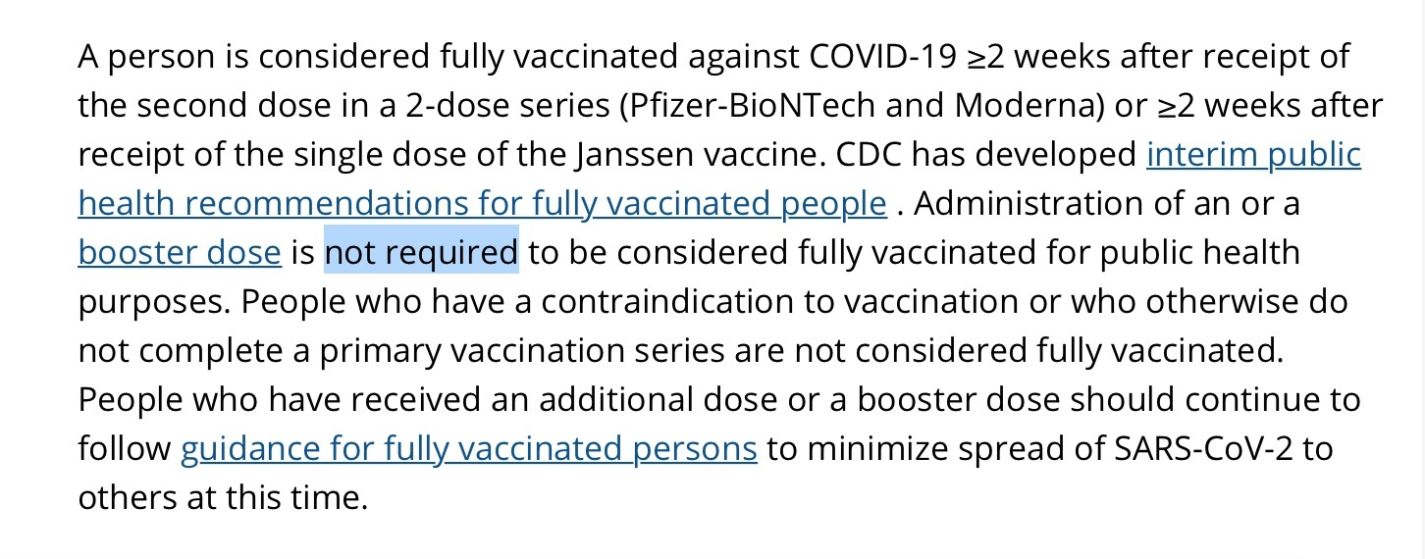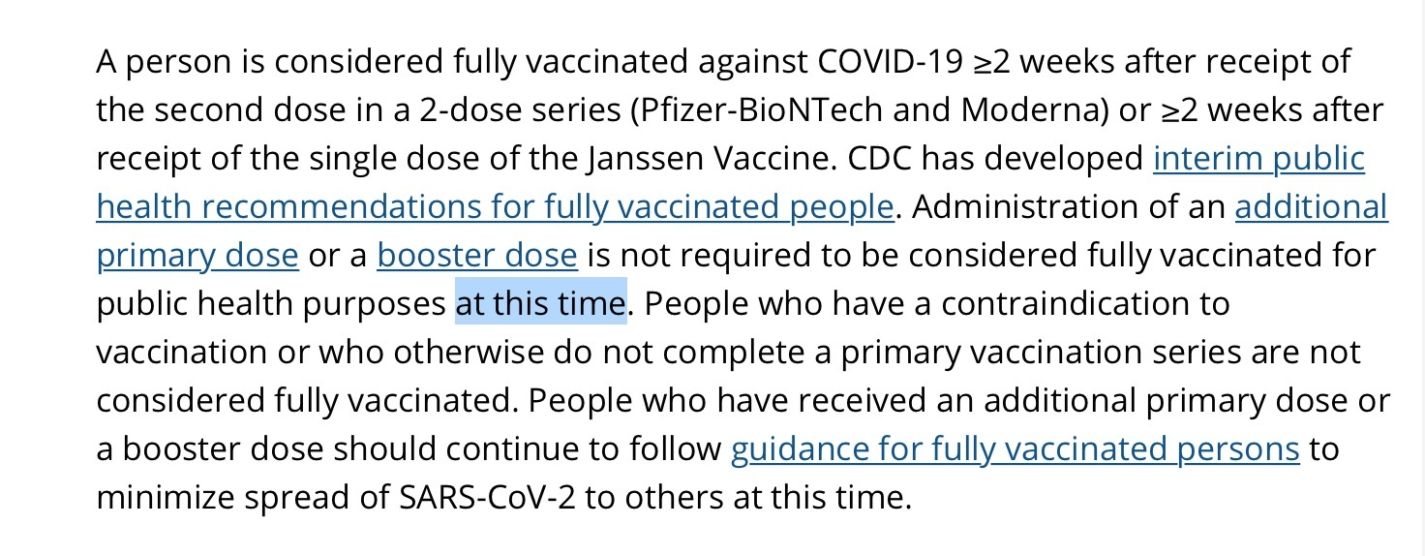Note: This post expands on the appendix to this research brief, “Who Is Contracting Covid-19 in NC?“
The Centers for Disease Control and Prevention (CDC) recently changed their definitions for “vaccine” and “vaccination.”
CDC definitions of vaccine and vaccination — BEFORE September 1, 2021

CDC definitions of vaccine and vaccination — AFTER September 1, 2021

Before September 1, 2021, the CDC had defined a vaccine as “A product that stimulates a person’s immune system to produce immunity to a specific disease, protecting the person from that disease” (emphasis added). Currently, however, the CDC states a vaccine is merely “A preparation that is used to stimulate the body’s immune response against diseases” (emphasis added).
Vaccination was previously defined as “The act of introducing a vaccine into the body to produc immunity to a specific disease,” but currently it is simply “The act of introducing a vaccine into the body to produce protection from a specific disease” (emphasis added).
CDC keeps revising its definition of “fully vaccinated”
Because of how the “unvaccinated” are defined bureaucratically as opposed to plain speaking, the category of “unvaccinated” must be properly stated “unvaccinated or not fully vaccinated individuals.” Taking cues from the CDC, the North Carolina Department of Health and Human Services defines someone as “unvaccinated” if the person has received only one of two injections or if the person is within two weeks of receiving the second injection.
What that means is that some unknown proportion of cases has occurred to people in definitional limbo somewhere between the first injection and 13 days after receiving the second one. Precision requires they be at least acknowledged.
Another problem looms for the definition of “fully vaccinated individuals”: it is changeable. Everyone considered “fully vaccinated” right now, having received two shots of Pfizer/Moderna or one shot from Johnson & Johnson (Janssen), could well be pronounced “unvaccinated” soon by the CDC (and therefore DHHS) if bureaucrats decide to pronounce a booster shot is necessary.
For example, the CDC’s definition on May 14 of “fully vaccinated” was the following: “A person is considered fully vaccinated against COVID-19 ≥2 weeks after receipt of the second dose in a 2-dose series (Pfizer-BioNTech and Moderna) or ≥2 weeks after receipt of the single dose of the Janssen vaccine.”

By October 25, the CDC’s definition had added the following proviso: “Administration of an [sic] or a booster dose is not required to be considered fully vaccinated for public health purposes” (emphasis added).

Shortly afterward, on November 16, the CDC amended that proviso to where it presently stands: “Administration of an additional primary dose or a booster dose is not required to be considered fully vaccinated for public health purposes at this time” (emphasis added).

Just last week, on Nov. 9, the CDC’s Twitter account answered “Yes” in response to the question “Am I still considered ‘fully vaccinated’ if I don’t get a COVID-19 booster shot?” This week, however, CNN reported that “The definition of ‘fully vaccinated’ is changing to three Covid-19 doses.” Also this week Dr. Anthony Fauci argued that receiving a “third-shot booster … should be part of the actual standard regimen.”
Of course, such a redefinition would strongly imply an ongoing series of redefinitions to push an untold, expanding number of boosters. The CDC, as illustrated above, is no stranger to redefinition.


